News
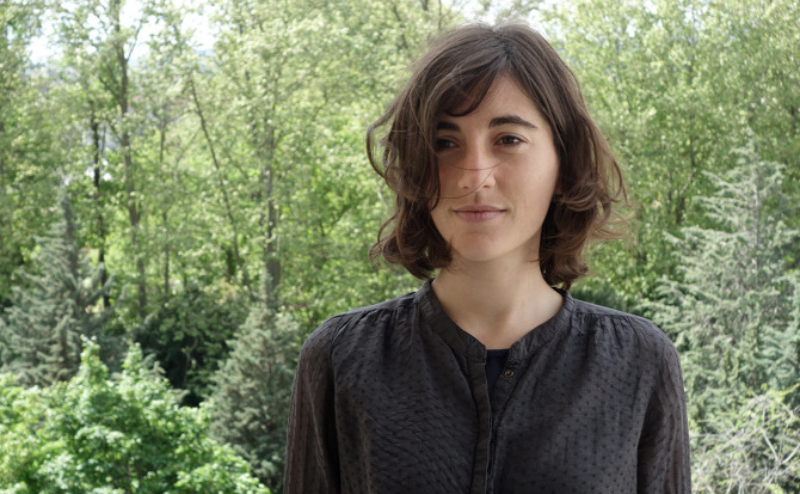
Lucrèce Andreae, film director and comic strip author
A 2010 graduate of the Master in Character Animation and Animated Filmmaking , Lucrèce Andreae is now a director and comic strip author. Her film "Pépé le morse" won the César for best short film in 2018. She also wrote and drew "Flipette et Vénère", a 300-page graphic novel, selected for Angoulême in 2021. She is currently working on a feature-length film.
You won the César for short film in 2018 for "Pépé le morse". Was this a great achievement for you?
It was obviously a great sign of recognition from the industry, and I was overjoyed.
On the other hand, I think I was more touched by the film's selection at Cannes, and more particularly by the fact thatthere were as many animated films as live-action ones in the competition.
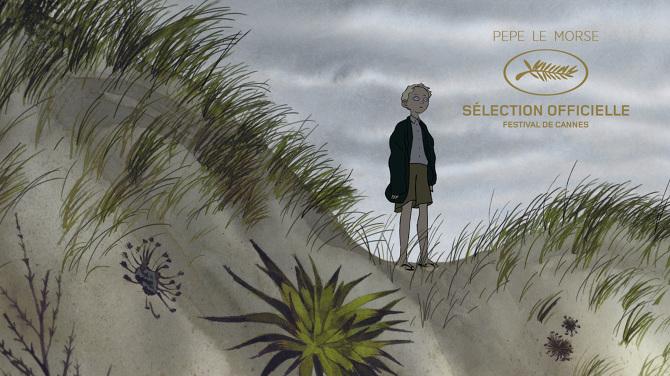
Poster for "Pépé le morse" - Lucrèce Andreae
You presented your feature-length project "Bergeronnette" at the Annecy Film Festival. Can you tell us more about the film?
I've been working on this film for several years now. I started writing in 2017, just after " Pépé le Morse ". I had a child and wrote a graphic novel in the meantime, so the project took a long time. I wanted to invest myself fully in the script stage, so it was a long-term project.
The film is starting to take shape, we pitched it at Annecy and we're going to pitch it at the cartoon movie. We're currently in the midst of fund-raising.
" Bergeronnette " is aimed at children. I like to think of it as my own Disney classic. I'm nostalgic for the films I watched when I was a child, which were a great source of inspiration for me. It was my dream to make a children's feature with all the magic, adventure, etc., but also with a more modern and engaged message.
The film tells the story of a little shepherd who lives in the Landes region of France in 1900. He is very proud to become a shepherd like his father. His father expects him to be strong and authoritarian with his animals, but he is sensitive, gentle, tender and attentive. He'll find a breath of freedom when he meets a witch who devotes her life to caring for animals and the forest. Now he has to choose between these two worlds.
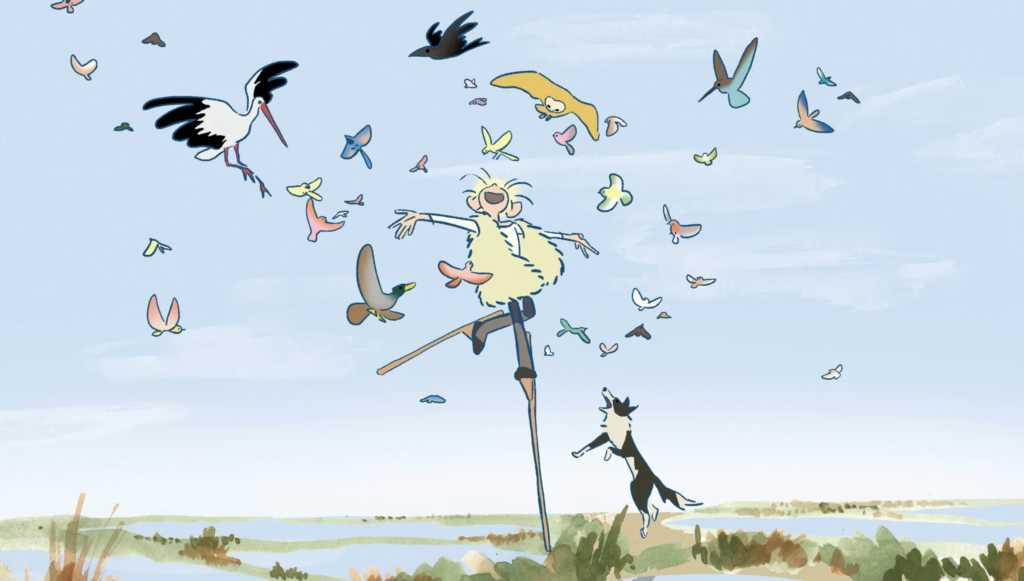
"Wagtail - Lucrèce Andreae
You've also published the comic strip "Flipette et Vénère". Are you interested in writing other comic strips? Why did you choose this medium for this story?
I'd just come out of a long tunnel of team animation and I wanted tobe alone on a project, without having to make any concessions. I wanted to be totally free and not depend on the financial pressures of animation, since everything is obviously cheaper when you're making a comic strip.
What's more, the story of "Flipette et Vénère" didn't lend itself to animation, so I thought of it as a comic strip. The scenes are fairly static, mainly involving characters talking to each other. It would have been a real pain to animate.
I'm writing a new comic right now. This alternation between comics and animation perfectly balances out any frustrations I may have with animation. There are lots of things I love about making a film, but the production time can be overwhelming.
Comics are perfect for keeping things fresh and expelling the artistic urges that can build up when you're working on a project for years on end. It's my space for freedom and experimentation.
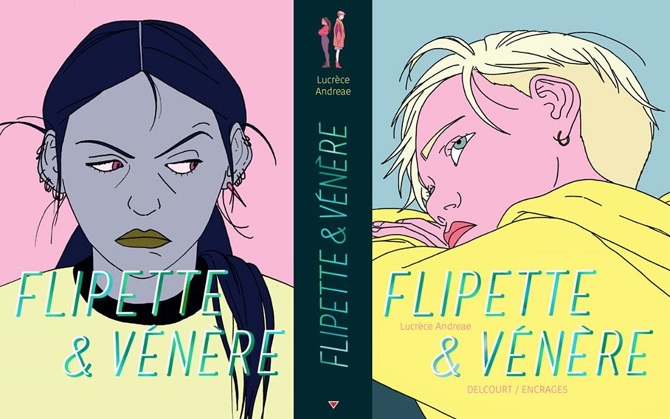
"Flipette et Vénère" - Lucrèce Andreae
What do you enjoy most about your job?
I like the fact that the work is varied, going from writing to directing actors to staging, from thinking about color to thinking about content and rhythm... I findanimation a very rich creative medium.
I could never have imagined myself making animated films a few years ago. I'm impulsive and impatient, and I was afraid I wouldn't finish my projects, but I love this succession of stages. Each one brings a new layer of freshness and interest to the film.
Generally speaking, I love telling stories, whatever the medium. Drawing and telling stories is what drives me.
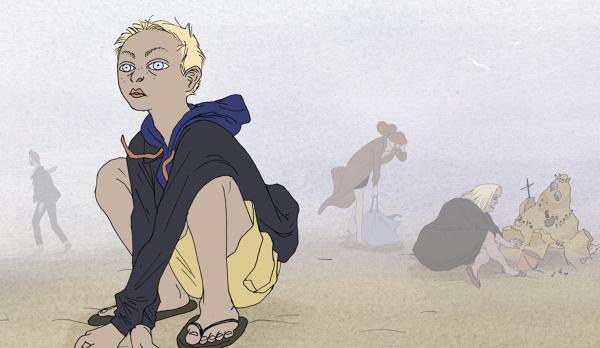
"Pépé le morse" - Lucrèce Andreae
What inspired you to become an animator?
It came about a bit by chance. When I was little, I used to say I wanted to be a children's book illustrator.
In the end, I think I went to GOBELINS for drawing because the school had the reputation of being a good technical school, and then I got hooked on film. Seeing the characters move, making them talk, that really appealed to me.
How do you write your stories? Where does your inspiration come from?
I often start with a theme that's been bothering me and that I want to explore further. I like to set myself challenges. I'll be motivated by the desire to discover a new author, or to set myself a conceptual, technical or graphic framework. With "Bergeronnette", my challenge is to make a feature film for children, a classic with magic and adventure.
I also use references that I want to digest in my own way. I draw a lot of my inspiration from photography. I can be moved by image compositions, scenes and places. For " Pépé le morse " I was very inspired by photos of nude beaches with standing, immobile figures, and by the work of Japanese photographer Shoji Ueda.
I also draw inspiration from different mediums, such as going to the theater, reading a novel, watching a live film...
My work often comes back to the family. In general, I'm very interested in human relationships, emotions, the search for oneself and finding one's place in a collective.
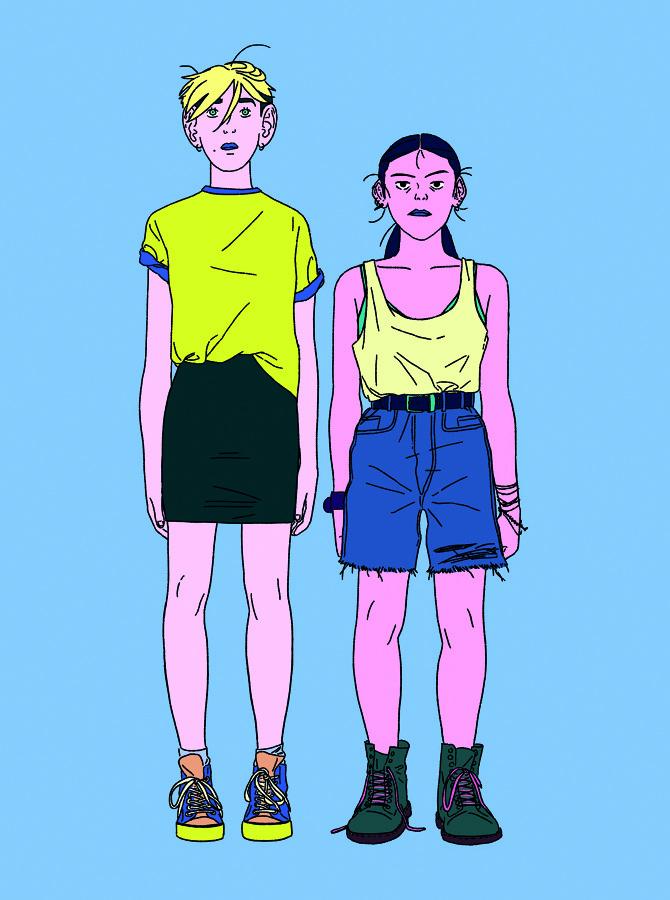
"Flipette et Vénère" - Lucrèce Andreae
Can you tell us a good memory of your studies at GOBELINS?
I really enjoyed Olivier Cotte's film analysis and animation history classes. He introduced us to auteur films with very frank biases that were completely different from what we were used to watching ourselves.
What advice would you give to a recent graduate?
It took me a long time to gain self-confidence, and I struggled a lot with self-doubt and imposter syndrome. Kristof Serrand told us something that helped me a lot.
He advised us to stop putting pressure on ourselves at school. After graduation, there's no point in trying to be the best animator, the best colorist...
I found that quite uncomplicated and it enabled me to stop comparing myself to others from a technical point of view.
I ended up finding my own identity in my work as an author. It was good to be able to say to myself that you can find your quality in other areas of animation, without necessarily being an excellent animator or Chara designer.
 2
2
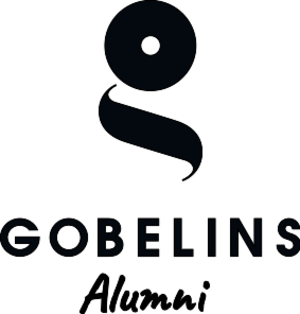







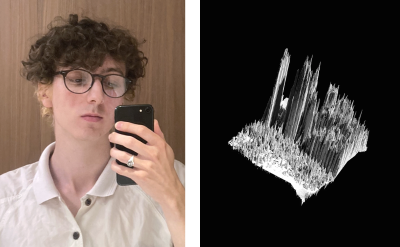
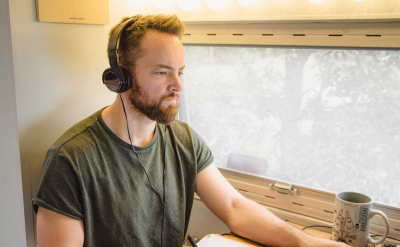
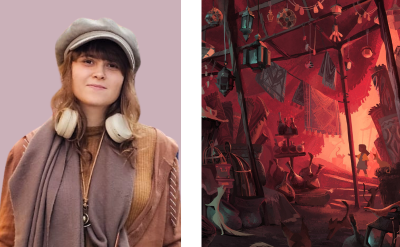
No comment
Log in to post comment. Log in.